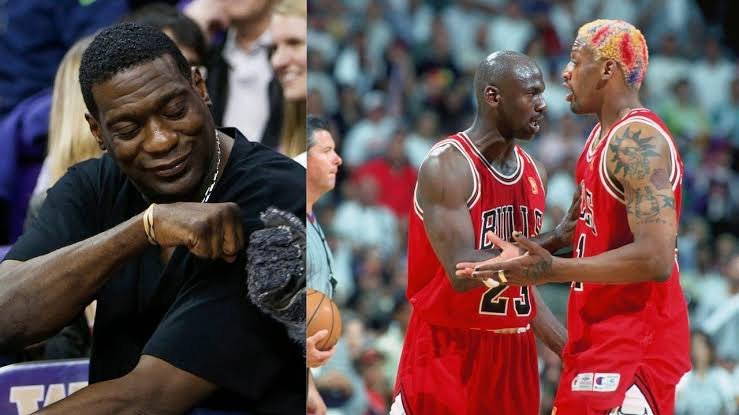
In the 1996 NBA Finals, a pivotal moment in basketball history unfolded as Michael Jordan, often regarded as a basketball deity, faced a unique challenge from the Seattle Supersonics. Known for his superhuman performances under pressure, Jordan’s stats in this series were surprisingly mortal: averaging 27.3 points, 5.3 rebounds, and 4.2 assists with shooting splits of 42% from the field, 32% from three-point range, and 84% from the free-throw line.
For the Bulls, clinching their historic 72-win season and fourth NBA title wasn’t solely due to Jordan’s usual heroics. Shawn Kemp, reflecting on the All The Smoke podcast, credited Dennis Rodman’s defensive prowess as a key factor in Chicago’s victory. Rodman’s unconventional tactics, both on and off the court, including his memorable performance of 7.5 points and an impressive 14.7 rebounds per game, significantly influenced the series outcome.
Rodman’s impact extended beyond statistics; his disruptive presence played a crucial role in neutralizing Seattle’s offensive strategies. Despite Jordan’s subdued scoring, Rodman’s contributions were pivotal in securing the Bulls’ victory, highlighting a lesser-known aspect of their championship run.
Beyond the 1996 Finals, Rodman and Jordan’s partnership marked a dominant era for the Bulls, boasting a remarkable 203-43 record over three seasons. While Rodman’s subsequent years didn’t replicate his 1996 performance, his legacy as a defensive stalwart during the Bulls’ second three-peat remains indelible.
Shawn Kemp’s insights shed light on a pivotal moment in NBA history, where Dennis Rodman’s unconventional brilliance and Michael Jordan’s resilience intersected to redefine championship basketball.




